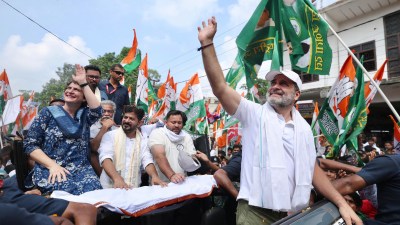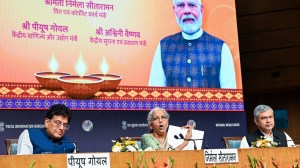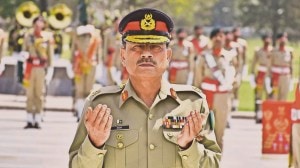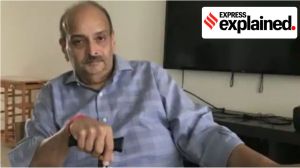‘Psst… who are you voting for?’
• PAY me first, I will tell you who I will vote for. • Give me money. I will vote for the party you tell me to vote for. • Wh...

• PAY me first, I will tell you who I will vote for.
• Give me money. I will vote for the party you tell me to vote for.
• Why are you asking questions? Anyway, we will vote for the party that pays us the night before elections.
SECOND-year commerce student Vijay Deshwal (24) could tell the Election Commission an inside story or two on popular voting methods and trends. He has spent the last few weeks travelling to the drought-stricken districts of Jalna and Beed in Maharashtra on foot, by bullock-cart or in rickety buses to ask villagers two seemingly simple questions: Who they voted for last time. And who they will vote for this time.
‘‘In a village in Beed, they brought me a glass of dirty drinking water from the well. The first thing they want to talk about is bad roads, then water,’’ recalls Vijay, now back in A C Nielsen’s crammed field office at shop number 16-22 opposite a suburban railway station at Sion.
For each 12-hour day that began with a packed lunch box at 5 am, Vijay was paid Rs 250. And one question put to him never varied: ‘‘Why are you talking to our womenfolk?’’
When marital fights threaten to break out in the village square, interviewers struggling to meet the male-female sample size have the licence to relax the confidentiality criterion. They fire the questions as protective husbands and fathers hover nearby, dictating the answers.
Those are the more responsive villages. Poll survey supervisor and interviewer Uday Singh — he reaches exit poll constituencies 24 hours before his team to hire a car — faced a standard response in Ahmednagar and Aurangabad: ‘‘We’ll tell you only what the sarpanch asks us to say.’’
Sometimes, village memories fail to remember who they voted for in the last election. But it can get worse. ‘‘It’s the toughest getting answers in Muslim settlements. A crowd always gathers, and people may be afraid to reply truthfully in public,’’ says Hemant Dham, senior manager, operations, at an A C Nielsen field office in Mumbai.
Dham’s three-person teams are trained to stay calm, avoid confrontations. ‘‘Follow your right hand when you choose sample houses,’’ he tells them. Covering 15 homes a day, the technique is expected to ensure a sociological sample mix.
The field staff — HSC-pass or graduates above the age of 21 — are always accompanied by supervisors, who conduct random audits to verify interviewers’ data. If the exercise reveals a major problem, the interviewer’s entire submission is rechecked. As a precaution, freshers are not sent out on exit polls.



- 01
- 02
- 03
- 04
- 05




























